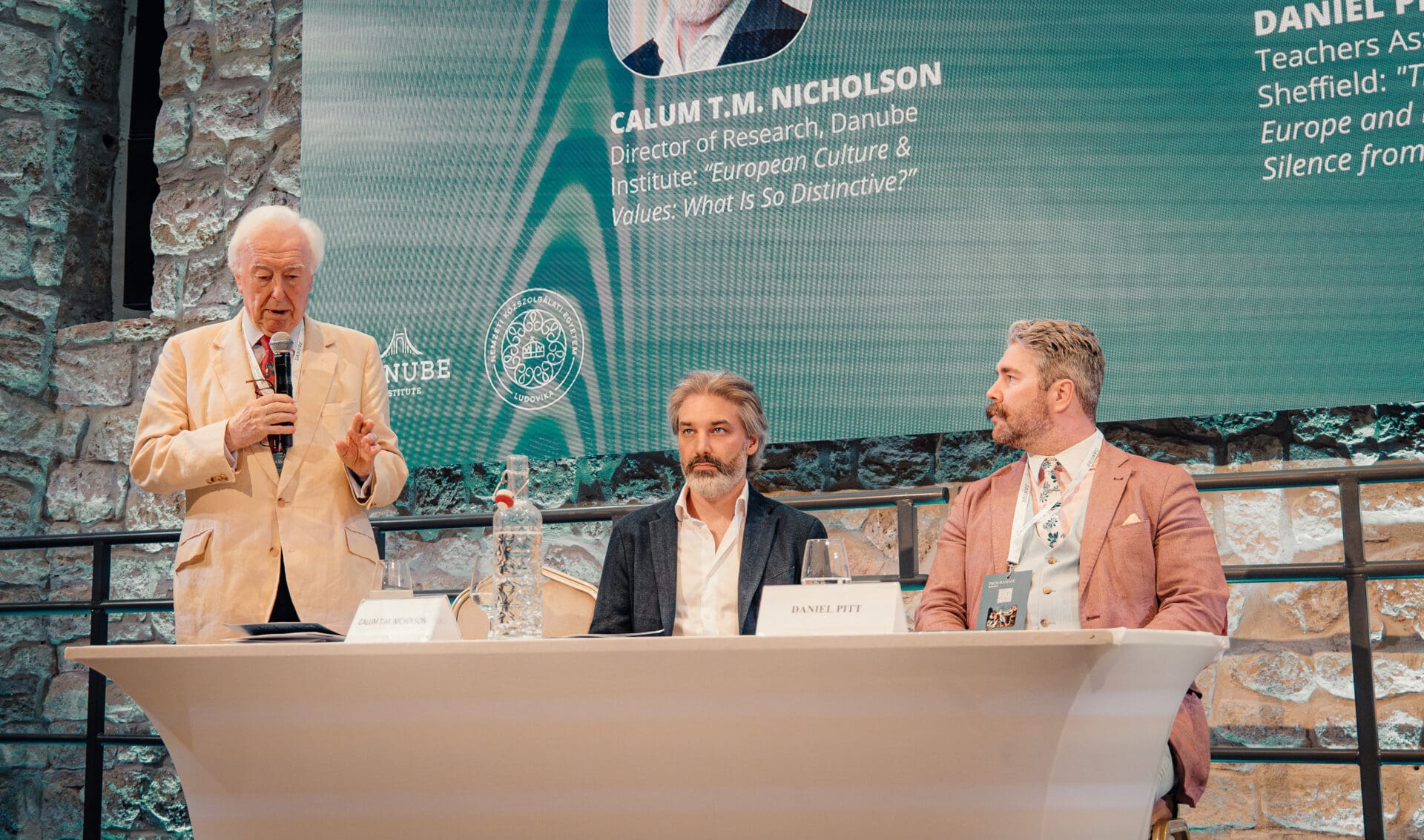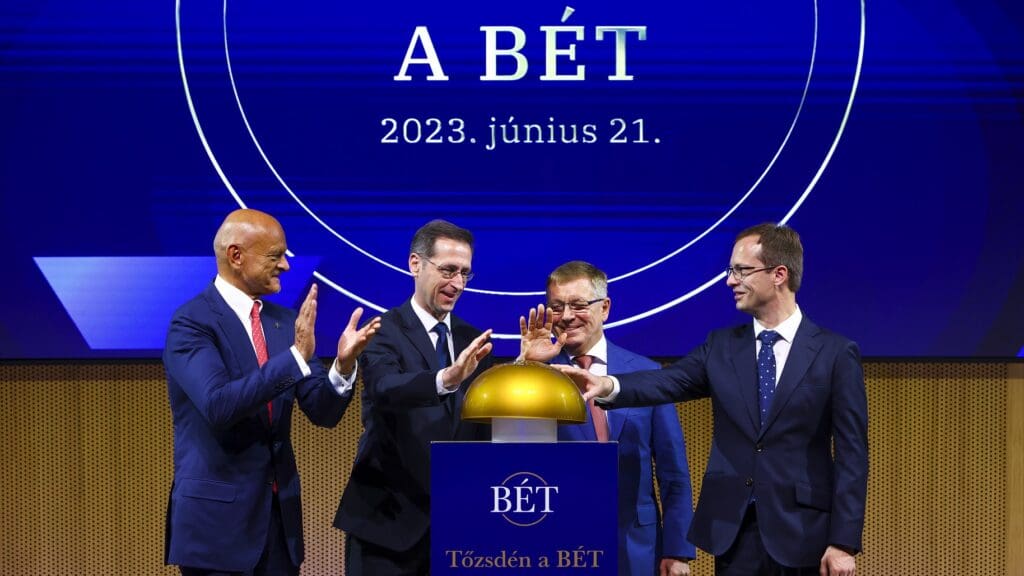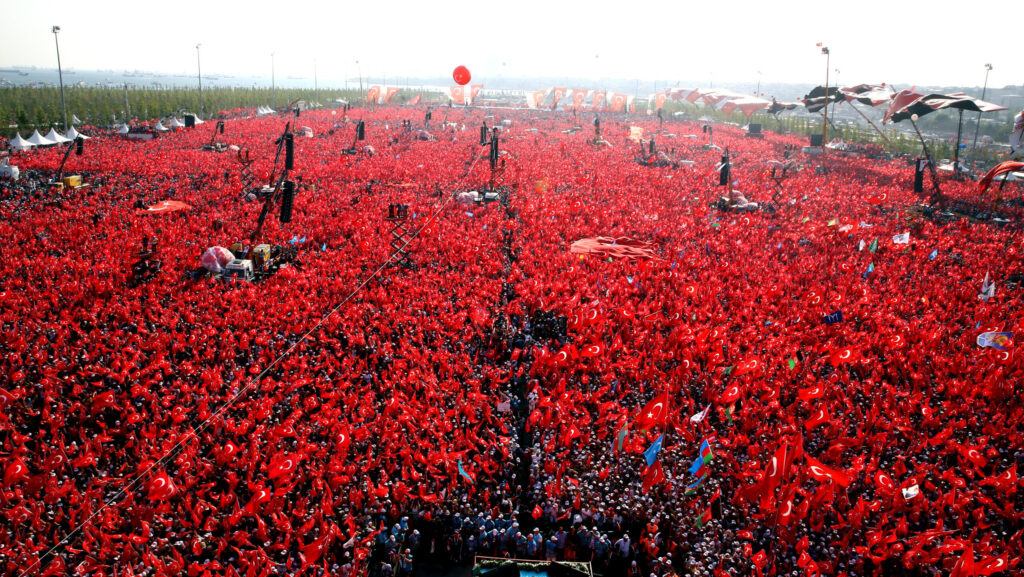Conservative visions of the future of Europe after the European elections, the cultural crisis in the Western world as influenced by far-left movements including the ‘Woke’, and international security and geopolithical challenges—these were the main topics of the Free Speech and Freedom of Thought: British and European Conservative Visions of the Future of Europe conference held at the Danube Institute. The all-day event aimed to bring together British, European, and American scholars and public figures to discuss how conservative political strategies can shape a world in flux, with 2024 being a highly significant election year in the UK, US, and European Parliament as well.
President of the Danube Institute John O’Sullivan emphasized the importance of academic discussions. In his speech he distinguished autonomism (total liberalism) from the practice of free speech, arguing that the first can lead to public disorder. At the same time, the latter is embedded in certain rules. Most importantly, free speech ought not to shock the public, but its role is to highlight truths effectively. Executive Director of the Danube Institute István Kiss focused on the recent political shifts following the EU elections. He noted that Green parties had lost favour among the voters while conservative and centre-right parties gained ground.
István Kiss emphasized that conservative parties maintaining or moving to the right fared better than those shifting to the left.
Ferenc Hörcher, a political philosopher and historian at the Ludovika University of Public Service and co-organizer of the conference, emphasized Hungary’s alignment with Anglosphere politics and the importance of studying both British and continental political thought. He noted that while British and continental conservatism differ, they share common roots. Hörcher highlighted the cultural changes in the Anglosphere, which are also influencing Europe. After the upcoming elections in the United Kingdom and the United States, we can witness major changes in our lives. He analysed the late 20th-century context of the Vatican’s political affiliation with Europe, and referenced Pope John Paul II’s 1988 visit to the European Parliament, where the Pope envisioned the EU as a democratic community. The Vatican, in the post-WWII era, was interested in European integration but not in the creation of a European ‘empire’, focusing instead on unity without a certain political dominance.
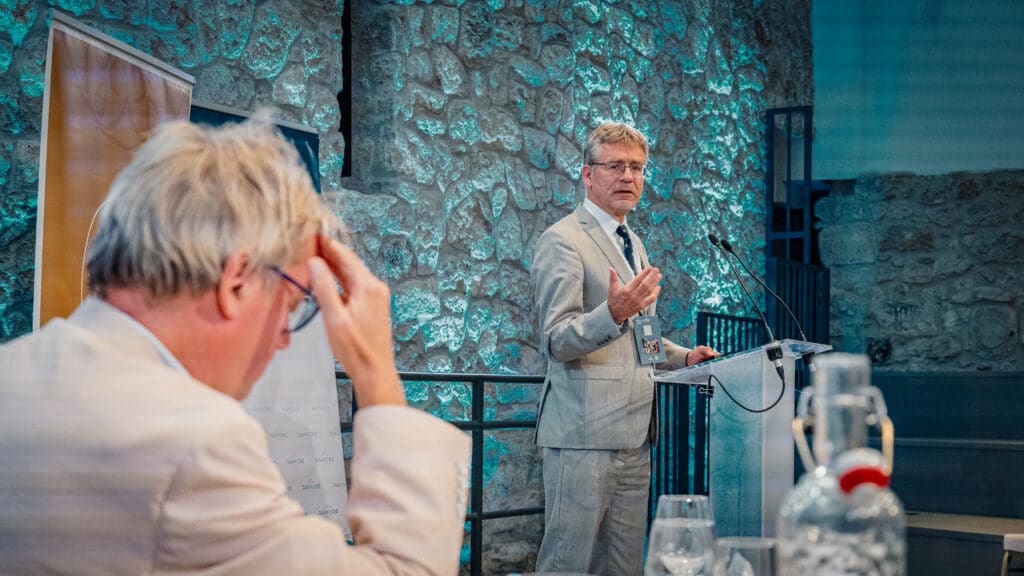
The Importance of True European Values
As part of the first panel discussion, Research Director at Danube Institute Calum TM Nicholson reflected on Oswald Spengler’s idea of a ‘declining West’ and put forward the fundamental question of what is in decline. He explored the meaning of Judeo–Christian values, pointing out that Western morals, deeply influenced by Christianity, differ from those in cultures like China or India. Nicholson noted that many Europeans embody Christian principles even without calling themselves Christians, highlighting the symbol of the crucifix as a revolutionary political act that connects people to God through the negation of power rather than the affirmation of it. This, he argued, contrasts with other religions where rulers are seen as close to God through their strength.
In Christianity, closeness to God does not lead to glory.
Nicholson argued that this negation extends to democracy, which focuses on limiting power rather than gaining it. Overall, he posited that these principles reflect a broader European cultural ethos rooted in Christian traditions that prioritize restraint and ethical conduct.
Teaching Associate at the University of Sheffield Daniel Pitt provided an overview of how the Conservative Party’s manifestos in the UK have reflected on conservative thought on Europe, spanning from Churchill to Boris Johnson. He highlighted Jacob Rees-Mogg’s observation in 1972ーjust before the UK entered the EUーthat the British constitution was in a state of ‘flux’, meaning it went through a deep change. Pitt emphasized that British Conservatives historically focused on embracing trade and commerce in their European strategy. This approach aligns with their economic priorities, reflecting a pragmatic stance towards European relations and not an ideological one. Pitt’s analysis shows that while the constitutional debate evolved over time, the emphasis on economic engagement remained a consistent theme in Conservative thought in the UK.
P Bracy Bersnak, Acting Chair of the Department of Political Science and Economics at Christendom College, talked about Joseph de Maistre’s critique of rationalism and of the French Revolution. He explained that Joseph de Maistre distinguished between three types of conservatism: orthodoxy, radical sovereigns, and historical utilitarianism. As a great critic of the French Revolution, he tried to defend the legitimacy of sacral institutions such as the monarchy and the papacy, arguing that only these political structures can ensure societal stability. At the same time, he realized that the monarchy had lost its importance after the Revolution and saw the Catholic Church as the potential agent of re-secularization. P Bracy Bersnak also underlined that Joseph de Maistre believed that the Catholic Church was important for French society and that a new role should be given to this old institution.
Sebastian Morello talked about Robert Spaemann’s philosophy and early theological debates about the nature of Christ, emphasizing that the early theologians’ concept of personhood clarified significant theological questions, such as Christ’s dual (human and divine) nature. Morello argued that humans, unlike animals, have rationality and can choose to embrace or reject their instincts and desires. Reflecting on 16th-century humanist thought, he noted that humans can achieve flourishing by integrating knowledge within their nature, as God endowed them with the ability to choose between their eternal and animalistic sides. As a conclusion, he highlighted that Christianity humanized mediaeval hierarchical systems by promoting the idea that all are equal in the church, despite social hierarchies. Morello stressed the importance of studying theological texts pragmatically rather than scientifically and asserted that rituals are essential for human life and learning.
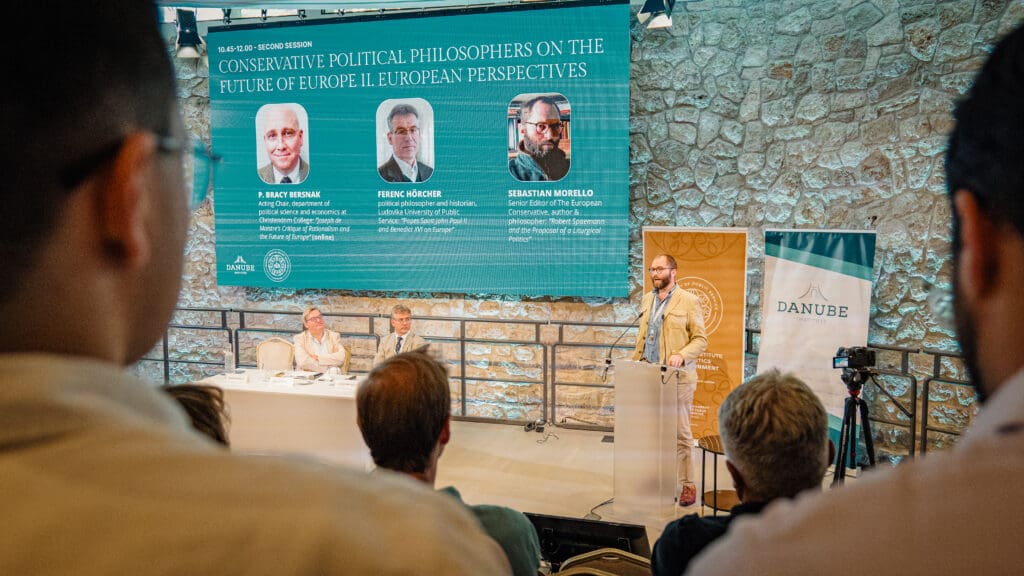
Problems of Modern Democracy: Political Polarization and Loss of Consensus
Ojel L Rodriguez Burgos, Lecturer at the University of the Sacred Heart in San Juan, Puerto Rico, and Visiting Fellow at the Institute of Intellectual History at St Andrews, focused his analysis on the reactionary global Right and its influence on conservatism. His work, influenced by Kenneth Minogue, critiqued the reactionary global Right’s strategy to challenge liberal hegemony and argued that Minogue’s conservative realism offered a pathway for conservatism to address contemporary challenges without succumbing to radicalism. Rodriguez’s analyses were published in prominent outlets like Forbes and Law & Liberty.
Director and Founder of ResPublica Phillip Blond argued that modern democracy faces a crisis akin to the fall of the Roman Republic, characterized by political polarization and loss of consensus. He suggested that if democratic principles could not endure,
society might revert to various forms of monarchy or absolutism,
debating whether future governance would embody virtuous and universal ideals or descend into self-interested, totalitarian rule.
Blond, who was a Visiting Professor in Christian Philosophy and Politics at the University of Public Service in Budapest, questioned whether democracy would merge with freedom or lead to a new era of clan-based and ethnic rule.
The most important scope of the conference was to bring together theoretical and practical knowledge in order to reflect on domestic and geopolitical challenges facing so-called Western countries. It also highlighted the fact that even modern politics, in the age of big-data, cannot be perceived solely as technê, but more like epistêmê. Without profound theoretical reasoning, not a single policy will be successful; because without it, the aim of the particular action is losing its scope.

